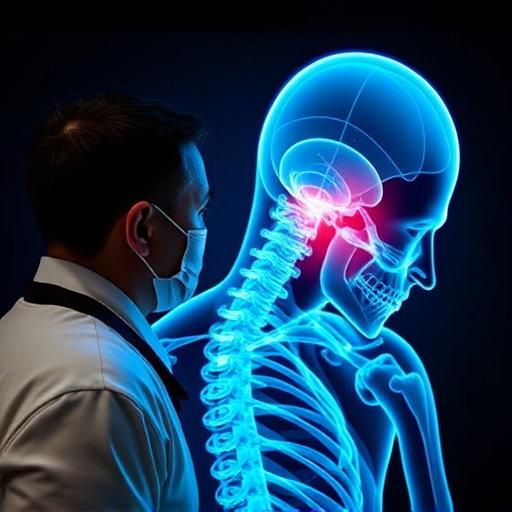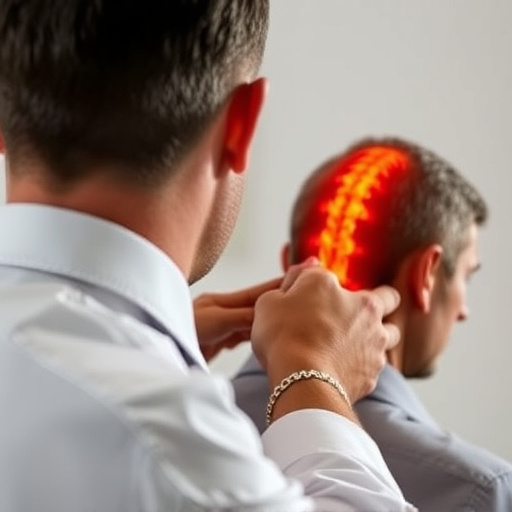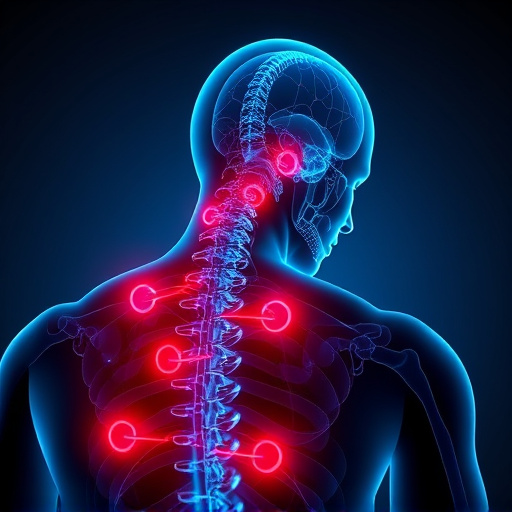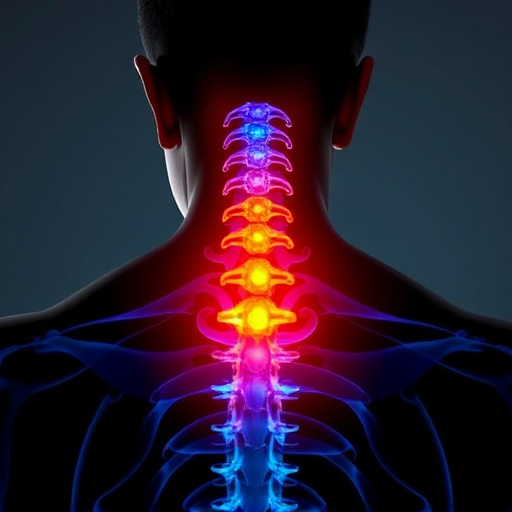Traumatic Brain Injuries (TBIs), caused by impact or head motion, range from mild concussions to severe impairments. Whiplash treatment specialists are crucial in managing these injuries, offering personalized care including manual therapy, cognitive rehab, and advanced technologies like VR and robot-assisted rehabilitation. They collaborate with care teams to tailor strategies for optimal recovery, focusing on physical, cognitive, and emotional aspects while educating families to support their loved ones' healing journeys.
Traumatic brain injuries (TBI) are a serious yet often overlooked health concern, with various causes and types. This comprehensive guide explores the critical role of whiplash treatment specialists in managing TBI, alongside advanced diagnosis techniques and personalized rehabilitation strategies. We delve into cutting-edge innovations, emphasizing the importance of supporting patients and families throughout their healing journey. By understanding these key aspects, we can enhance recovery outcomes and improve quality of life for those affected by TBI.
- Understanding Traumatic Brain Injuries: Causes and Types
- The Role of Whiplash Treatment Specialists in TBI Management
- Advanced Diagnosis Techniques for Accurate Assessment
- Personalized Rehabilitation Strategies for Optimal Recovery
- Innovations in TBI Care: Emerging Therapies and Technologies
- Supporting Patients and Families Throughout the Healing Process
Understanding Traumatic Brain Injuries: Causes and Types

Traumatic brain injuries (TBIs) are a broad category of neurological harm caused by external physical impact to the head or rapid acceleration/deceleration inside the skull. These injuries can range from mild, like concussions, to severe, involving prolonged loss of consciousness or even permanent damage to vital brain functions. Understanding TBIs is crucial for effective whiplash treatment specialist strategies.
Causes often include motor vehicle accidents, sports-related impacts, falls, and violent blows to the head. Different types of TBIs are classified based on their severity and location. Concussions, for instance, are mild but can lead to headaches, dizziness, and cognitive issues if not managed properly. More severe forms like diffuse axonal injuries (DAIs) result from rapid, intense rotation of the brain within the skull, potentially causing widespread damage. Recognizing these variations is essential for a whiplash treatment specialist in developing tailored care plans.
The Role of Whiplash Treatment Specialists in TBI Management

Whiplash treatment specialists play a crucial role in managing traumatic brain injuries (TBI), especially those resulting from car accidents or other high-impact events. These experts are trained to recognize and address the complex physical and cognitive symptoms associated with whiplash, which can be a significant component of TBI. Their expertise lies in understanding the biomechanics of whiplash and its impact on the brain and nervous system.
Through specialized assessments and treatments, whiplash treatment specialists help patients navigate the challenges posed by TBI. They employ advanced techniques, such as manual therapy, to reduce neck pain and improve range of motion, which are common issues in whiplash-related injuries. Additionally, they offer cognitive rehabilitation strategies to support individuals in recovering their mental acuity and overall brain function. This holistic approach ensures that patients receive comprehensive care tailored to address both the physical and cognitive aspects of TBI.
Advanced Diagnosis Techniques for Accurate Assessment

Personalized Rehabilitation Strategies for Optimal Recovery

Personalized Rehabilitation Strategies are key to optimal recovery for individuals with traumatic brain injuries (TBI). Each patient’s journey is unique, and a whiplash treatment specialist plays a crucial role in tailoring rehabilitation plans to meet individual needs. These strategies may include physical therapy to improve motor skills and balance, cognitive therapy to enhance memory and problem-solving abilities, and emotional support to help patients cope with the challenges they face.
The specialist works closely with the patient and their care team to assess progress regularly and make adjustments as needed. This personalized approach ensures that rehabilitation stays on track, maximizing the potential for a successful recovery. By focusing on the specific needs and goals of each patient, rehabilitation strategies can help individuals regain independence and improve their quality of life after a TBI.
Innovations in TBI Care: Emerging Therapies and Technologies

In recent years, the field of traumatic brain injury (TBI) care has seen significant advancements thanks to innovations in therapies and technologies. One notable area of progress is in the treatment of whiplash-associated disorders, where specialized care from whiplash treatment specialists has emerged as a game-changer. These experts utilize cutting-edge techniques such as advanced imaging, neurofeedback, and targeted pharmaceutical interventions to improve patient outcomes.
Emerging technologies like virtual reality (VR) therapy offer immersive experiences designed to help patients navigate their recovery journey. VR can simulate everyday environments, allowing individuals to practice cognitive and physical tasks in a safe, controlled setting. Additionally, robot-assisted rehabilitation is gaining traction, providing precise movements and real-time feedback to optimize motor function and coordination. These innovations not only enhance traditional TBI care but also open new avenues for more effective and personalized treatment plans.
Supporting Patients and Families Throughout the Healing Process

Traumatic brain injuries (TBIs) demand a holistic approach to healing, and supporting patients and families is an integral part of this process. Whiplash treatment specialists play a crucial role in providing expert care by offering guidance and resources tailored to each individual’s unique recovery journey. They understand that TBIs can significantly impact not just the patient but also their loved ones, so they empower families with knowledge, ensuring everyone is involved and prepared for the challenges ahead.
These specialists create a supportive environment, offering regular check-ins and therapy sessions designed to alleviate symptoms like headaches, dizziness, and cognitive impairments. They also provide educational resources and practical tips for managing daily life during recovery. This comprehensive support system helps patients feel valued and encourages families to actively participate in their loved ones’ healing, fostering a sense of unity and empowerment throughout the entire process.














